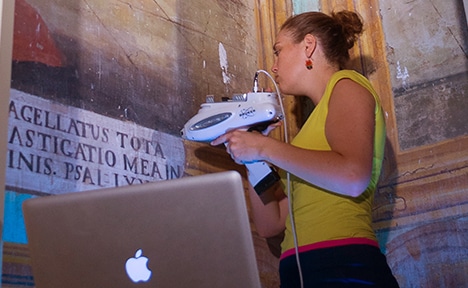
Aci Sant’Antonio, Sicily, it’s my hometown. Anybody visiting me, after a little traveling around in the area, would eventually ask; Aci Sant’Antonio, Acireale, Aci Trezza, Aci Castello, Aci San Filippo…What all those Aci means? The story is told by the Roman poet Publius Ovidius Naso (43 BC – AD 18), known as Ovid. He wrote (Metamorphoses Bk XIII:738-788) that, Aci, a young shepherd, was in a romantic relationship with Galatea, a sea-nymph. But the Cyclops Polyphemus, living on Mount Etna, was jealous and eventually he killed Aci. In great sorrow, Galatea obtained that the Gods turned Aci into a river so they would meet again, forever, on the seashores. How romantic!

There was a river called Aci, but it disappeared since Mt Etna’s many eruptions eventually rearranged the landscape. There was also a Greek town, Acis, which survived for centuries until 1169, when a huge earthquake eventually scattered its population into the many Aci’s boroughs; Aci San Filippo, Acireale, Aci Castello, Aci Sant’Antonio,..
I enjoy perform some scientific art examination in my village which has some interesting case studies. Just recently, in the main Church, some frescoes were discovered. At the four angles of the Crocifisso Chapel, during some renovation works, older frescoes were found behind the neoclassic decoration. How interesting! I commend the solution found to preserve both access to the just discovered frescoes and the later style of the chapel.
Crocifisso Chapel, Chiesa Madre, Aci Sant’Antonio, 360 view.
I had already some multispectral imaging done during a training section in July and later in August I had the opportunity to have Samantha Stout, PhD student at University of California San Diego, to perform X-ray Fluorescence spectroscopy on those frescoes’ pigments.



Aci Sant’Antonio boasts also one of the few last Sicilian cart painters; Master Domenico Di Mauro, currently 100 years old and 3 months. We visited his studio, he‘s still working, and we analyzed some 1920′ pieces of his collection of Sicilian carts.









Hi, I am studying the monastic Hospital Brothers of St. Anthony and literature claims a hospital was located in Sicily. I am trying to determine the precise location. Would you know of this? Also, the old fresco shows a man kneeling with black gloves or something. Do you have a better photo?
Thanks,
Kathy
Hi Kathy,
thanks for your interest to our local history.I suggest you contact the local parish This is the website. Look for “contatti” There are a bunch of emails you can write to. They will know much more than me or will give you better contacts.
http://www.parrocchia-acisantantonio.it/